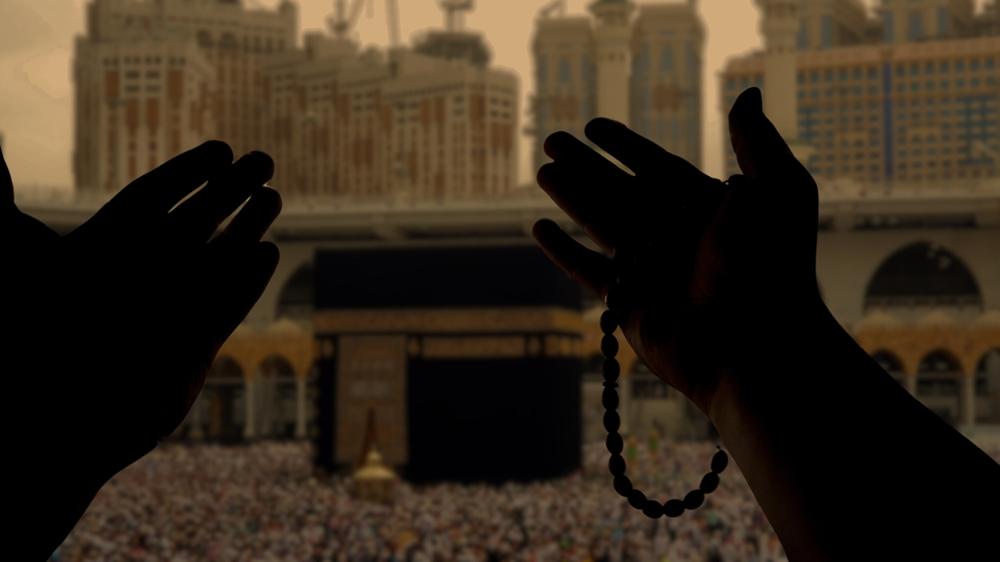
Dhul Hijjah is often referred to as the holiest month of the Islamic Year, being one of the four sacred months. This is the month in which Eid al-Adha and the sacred ritual of Qurbani fall, making it the most religiously significant time of the year. What’s more, it’s a time in which many Muslims embark on the Hajj, which also contributes to the blessings of this month. The sacred nature of this month means that blessings are multiplied during this time, so many people choose to fast to make the most of this. To that end, we’ve put together a handy guide to help you navigate Dhul Hijjah fasting.
It’s advisable to fast on the first nine days of Dhul Hijjah, as the Prophet Muhammad (PBUH) used to do this and encouraged others to do the same.
As previously mentioned, Muslims are encouraged to fast for the first nine days of Dhul Hijjah. Since the Islamic Calendar follows the lunar year, the dates shift slightly each year. This year, the first nine days of Dhul Hijjah are set to fall from 7 June to 15 June. As a result, you’re encouraged to fast for the duration of these days. If you’re unable to fast for the entire nine days, the ninth day (15 June) is the most important for fasting in Dhul Hijjah, and this is otherwise known as the Day of Arafah.
While it’s recommended to fast the first nine days of Dhul Hijjah, it’s haram (forbidden) to fast on the tenth day. This is because the 10th day of Dhul Hijjah is the day upon which Eid al-Adha falls – the holiest day in the Islamic Calendar.
Unlike during Ramadan, it’s not mandatory to fast during Dhul Hijjah. Despite this, it’s recommended that Muslims fast during these days so that they’re able to reap the rewards of the sacred month. What’s more, it’s the Sunnah of the Prophet Muhammad (PBUH) to fast during these days. When you choose to fast on these days, you make it easier to purify your heart and strengthen your bond with Allah (SWT). Not only will this affect you during this time, but it will also help you in regard to the previous and upcoming years.
There are many benefits to fasting during the first nine days of Dhul Hijjah, including the fact that it allows you to expiate past and future sins. Fasting during this time allows you to repent for sins of both the previous and upcoming year, meaning you can make up for two years’ worth of sins in just nine days.
Similarly, Allah (SWT) frees more people from hellfire on these days - more so than any other time. So fasting on the first nine days of Dhul Hijjah allows you to help free those who have repented for their sins from suffering.
Even if someone has sinned frequently in their lifetime, the first nine days of Dhul Hijjah are the time to seek forgiveness. It’s during these days that you’re more likely to obtain forgiveness from Allah (SWT) than at any other time.
Last but not least, the first nine days of Dhul Hijjah are when Allah (SWT) expresses pride for his devoted followers. Fasting during this time shows the Creator your dedication, and he will be proud of you and reward you for doing so.
We can understand the impact of fasting during the first nine days of Dhul Hijjah from the following Hadiths:
“There are no days on which righteous deeds are more beloved to Allah than these ten days.”
Hadith | Sahih al-Bukhari
“The Prophet used to fast on the first nine days of Dhul-Hijjah and the day of Ashura, and three days each month, the first Monday of the month and two Thursdays.”
Hadith | Abu Dawood
“It expiates the sins of the preceding year and the coming year.”
Hadith | Muslim
“The people of knowledge consider it recommended to fast on the Day of ’Arafah, except for those at ‘Arafat.”
Hadith | Tirmidhi
It’s not just about fasting in Dhul Hijjah – there are a number of ways that you can reap the additional blessings of this holy time. For instance, you might take these blessed days as an opportunity to share your wealth with the less fortunate. UKIM accepts your Sadaqah, Zakat, and Qurbani donations during this time, allowing you to reach those who need it most in the build-up to Eid al-Adha.
Copyright © 2025 UKIM All Rights Reserved.
UK Registered Charity Since 1962
Charity Registration No. 250275



